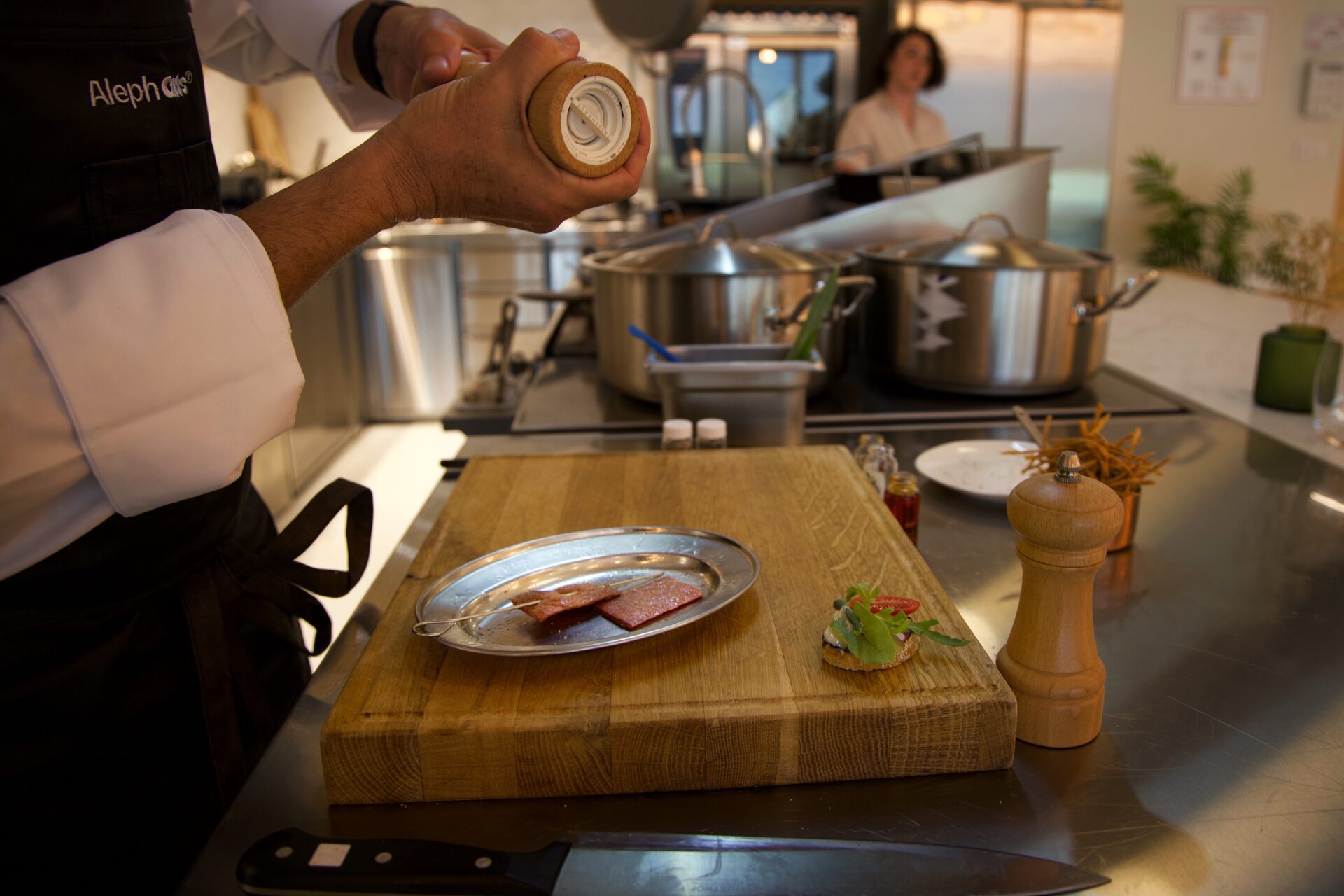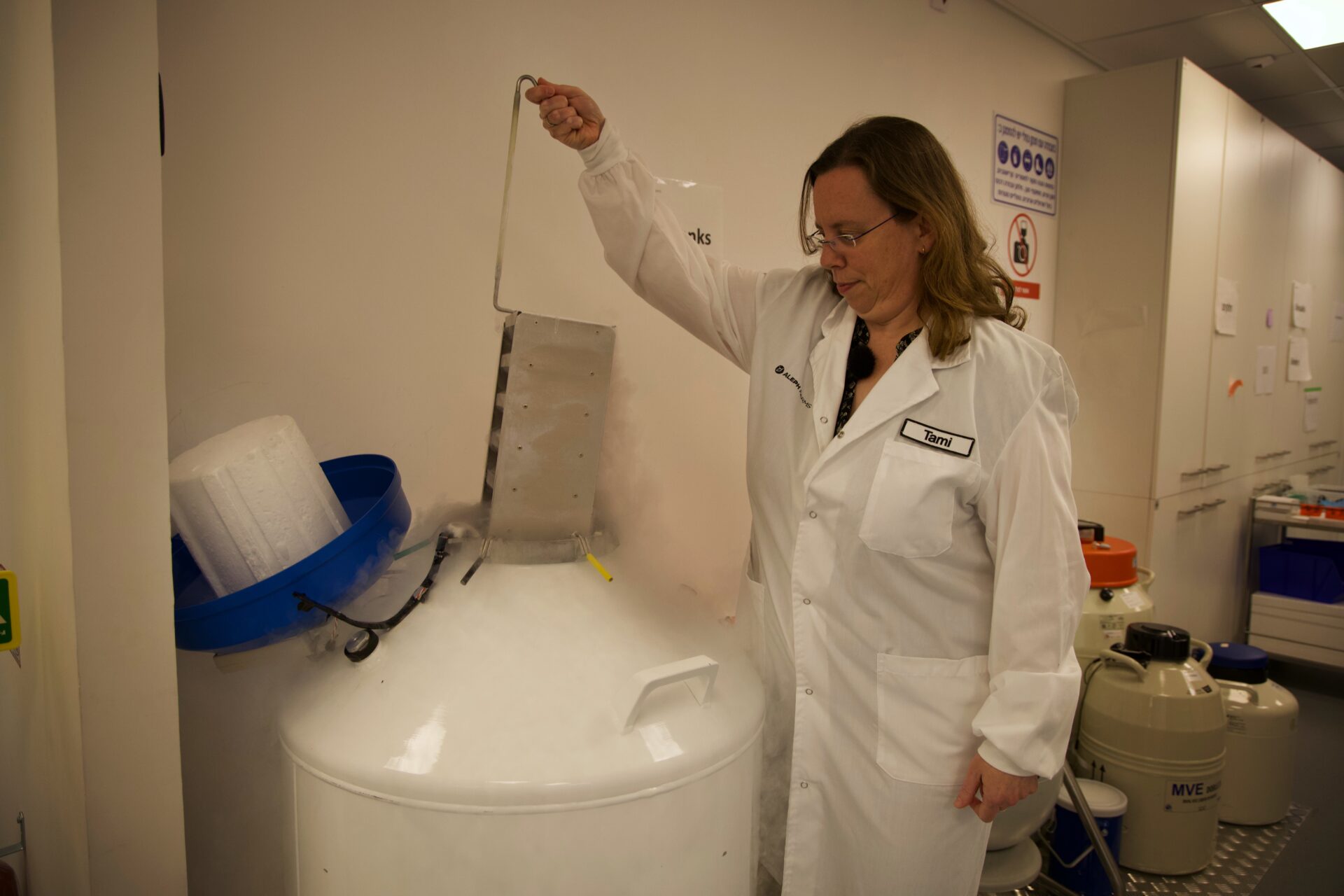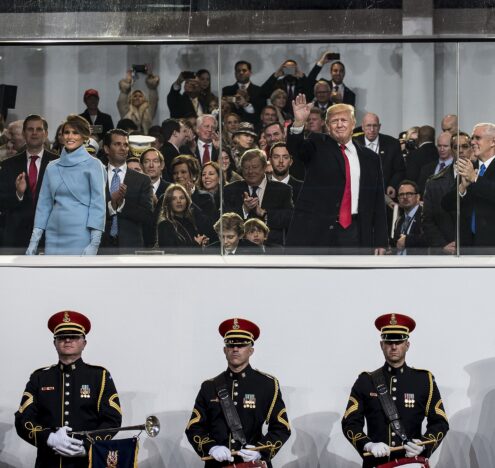The UAE-Israel Partnership
The UAE’s investment in the cellular meat start-up was made possible by the Abraham Accords in 2020. Those accords saw the Emirati kingdom normalize relations with Israel, along with Bahrain and Morocco, without requiring a Palestinian state as a precondition. On the back of this framework brokered by then US President Donald Trump’s administration, the venture capital arm of the Abu Dhabi state-backed holding company invested in the Israeli company — its first partner based in Israel. Aleph Farms has also received funding from the Israeli Innovation Authority, the body that oversees the country’s tech policies.
With a hot and saline environment, a scarcity of arable land and a lack of water, combined with 9.5 million residents, the UAE is keen to reduce its reliance on food imports. Lab-grown meat is an attractive technical solution for the UAE: meat from fewer resources with a guaranteed supply chain and better control over inflation and price. Yet, some academics have argued that the potential energy savings from lab-grown meat have been overstated.
Countries like the UAE and Israel are not currently food insecure, “but they’re hedging against a future in which climate [change] and conflict are more frequent, more intense, and more unpredictable,” says Zane Swanson, a fellow with the Global Food and Water Security Program at the Center for Strategic and International Studies, as DC-based think tank.
Economic Ramifications
The COVID-19 pandemic and the Russian invasion of Ukraine have highlighted the increasing vulnerabilities of a global food system that is facing recurring disruptions in supply and price from economic, environmental, and geopolitical shocks. Strikes on ships in the Red Sea area by the Iran-backed Houthis in Yemen have already disrupted global shipping supplies, while rising tensions between Iran and Israel could further destabilize the region and air travel.
The consolidation of the meat industry makes it particularly vulnerable to a systemic shock because fewer companies are controlling the majority of the supply. In 2021, a Russia-based cyber attack on the world’s largest meat packing company briefly put meat packing in the US offline. This “ultimately didn’t amount to a terrible disruption, but it could have and it did have economic ramifications,” says Swanson.
Due to the destruction of wildlife, the transfer of disease from animals to humans is also becoming increasingly common. “If livestock are coming into contact with wildlife more frequently because of land use expansion and there is environmental degradation by expanding pasture land, for example, you increase the risk of those disease vectors being passed on to humans,” says Swanson. Scientists have said that the likelihood of an extreme epidemic could increase threefold in the coming decades.
Food Technology and IP
Many smaller and wealthier countries like the UAE and Israel, which are import-dependent due to limited tracts of arable land, are keen to become resilient to these shocks. Their cash-rich governments are exploring ways in which they can increase and diversify domestic production, so that they are less entangled with a global food supply chain that is increasingly unpredictable.
“If a government or organization thinks that alternative proteins and cultivated meat could be a technology that will be incredibly important in 2050 or even 100 years, owning the technology and the IP that facilitates it would be incredibly lucrative,” says Swanson.
China’s latest five-year agricultural plan includes alternative proteins. The Chinese population consumes over a quarter of the meat produced globally and despite the country being the largest agricultural producer in the world, it is also the world’s largest agricultural importer. China is “also obviously eminently interested in controlling technology and IP,” notes Swanson.
Due to the current high cost of production and lower taste parity (the thin Aleph Cuts may not tempt Emiratis away from kebabs just yet), alternative proteins are unlikely to replace meat in the near future. But they do have the potential to increase the resilience of the food system, particularly in the case of plant-based “meats” derived from non-animal sources (as used in Beyond Meat) as the inputs are more varied than for livestock. Alfalfa beans, for example, are extremely important for feed for cattle, and any delay in their supply can disrupt the wider supply chain.
Will the UAE-Israel Alliance Survive?
Despite the death toll from the Israeli military campaign in Gaza, which now exceeds 34,000, and the spread of famine in the northern half of the besieged Palestinian enclave, the UAE has stuck quietly and resolutely to the Abraham Accords, although it has evacuated injured Palestinians and provided aid to the Strip.
In a sign of bullish confidence in the UAE’s willingness to prioritize long-term self-interest and more than two billion dollars in annual trade with Israel over public concern for the war in Gaza, Aleph Farms has said it expects to forge ahead with plans to open a manufacturing facility in Abu Dhabi.
That promise was thrown back in their face.
– Sarah Leah Whitson
But Sarah Leah Whitson, the executive director of Democracy for the Arab World Now (DAWN), says: “It is a fantastical notion that you are going to normalize Israel or broaden its acceptance in the region despite the ongoing military occupation of Palestinians by making these deals with unrepresentative, unaccountable and frankly illegitimate regimes in the region — it’s like selling snake oil.”
Before Oct. 7, Whitson says, “there was this narrative in the media strongly pushed by the United States that the Palestinian question could be ignored and that it was a managed occupation.”
Empty Promises
Whitson argues that the Hamas-led attacks on Oct. 7, followed by Israel’s overwhelming military response, has proven otherwise. These seismic events have been destabilizing for many of the Arab regimes which signed the accords because of public resentment towards US allyship and by extension Israel.
The Arab Center in Washington DC conducted polling in 16 Arab countries (not including the UAE) between December 2023 and January 2024 and found that the Arab public rejected the recognition of Israel at a rate of 89%, compared to only 4% who supported recognition of the Jewish state. While protests and public criticism in the authoritarian UAE have been rare, the deputy police chief for Dubai posted on social media earlier this year that Israel has “proved that its intentions are evil” and that Israeli leaders “don’t deserve respect.”
When the UAE signed the Abraham Accords, Whitson notes that the Emirati regime said it was promised that Israel would curtail settlement expansion in the West Bank. Almost four years later, the occupied Palestinian territory has seen unprecedented levels of land seized and placed under Israeli control. “That promise was thrown back in their face,” says Whitson, who fears that the war in Gaza will simply give Arab regimes like Saudi Arabia more leverage in bilateral deals with the US, while Palestinians remain stateless.





















